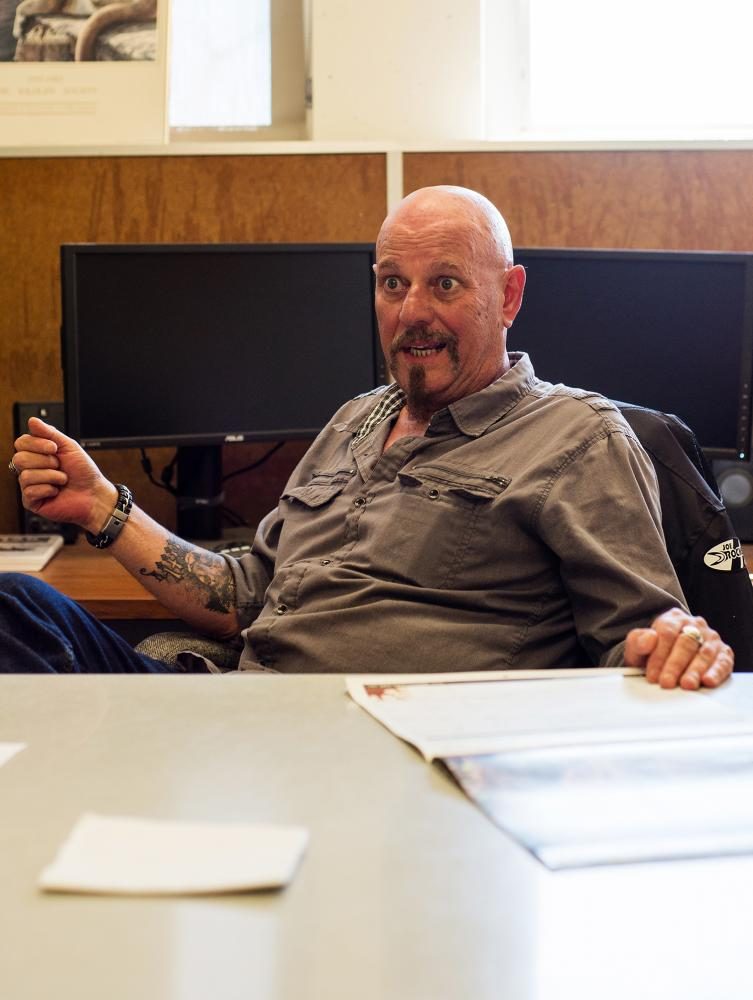WSU disavowal of researcher ruins credibility
Scientific research is too often ignored by personal political agendas
DES MARKS | Daily Evergreen File
Robert Wielgus, then-director of the Large Carnivore Conservation Lab, talks about the lethal measures being taken on the Profanity Peak wolf pack Aug. 29, 2016. Weilgus agreed to a settlement with WSU leading to his resignation.
August 23, 2017
Robert Wielgus, director of the WSU Large Carnivore Conservation Laboratory, was the center of controversy earlier this year when the university punished him for speaking out against wolf pack removal.
This “war over wolves” as The Seattle Times dubbed it, highlights the unfortunate fact that scientists are often silenced by politicians and lobbyists, and stresses the importance of educational institutions respecting and protecting researchers. By allowing these powerful groups to influence what faculty can publish, the university is hurting its own credibility as a research institution.
Public Employees for Environmental Responsibility (PEER) is a nonprofit group dedicated to advocating for whistleblowing scientists. In April, PEER filed a complaint against WSU, stating that Wielgus was unfairly punished by the university for publishing his research.
Adam Carlesco is a PEER staff counsel representing Wielgus. Carlesco said the organization first became involved with wolf research when Wielgus contacted them last fall, feeling that his work, which was legitimate and scientifically accepted, was being unfairly restricted.
“In 2013, Wielgus was selected as lead researcher for a legislature-sponsored study on livestock and wolf interaction,” Carlesco said, “and his research showed the most effective way of handling things is to not employ lethal control, but to put the burden on ranchers to employ non-lethal control techniques.”
Carlesco added that Wielgus’ findings are not very controversial among fellow researchers, and that studies from other parts of the U.S. and the world support Wielgus’ findings on the impact of lethal versus non-lethal pack control.
Legislators, primarily in the northeastern part of the state, were instrumental in silencing Wielgus’ research and leveraged the university by threatening to withhold funding to the new medical school, Carlesco said.
One of the legislators who has been a strong opponent of Wielgus is Joel Kretz, a representative from Washington’s 7th District. Kretz is a rancher and avid hunter and has frequently opposed Wielgus’ research, including a previous study that supported fewer cougar killings. Carlesco said Kretz has taken a large part in threatening Wielgus and pressuring the university to disavow the scientist.
It should have been WSU’s priority as a research institution to support the findings of their faculty. As a scientist, Wielgus’ job is to research and help educate the public about his field. When university administrators are willing to cave in and allow non-scientists to control researchers, it impedes the university’s ability to produce quality research. It sends the message that WSU research can be legitimate and useful, but only when certain groups allow it to be.
It is important that we stand up to those who seek to punish or quiet scientists, and that the university refrain from disrupting a researcher’s ability to do legitimate peer-reviewed work, regardless of what politicians or lobbyists think.
Wielgus is well-respected and experienced within the scientific community, and his wolf studies have been corroborated by other researchers in the same field. Science simply isn’t about what politicians or the wealthy want. If university officials don’t stand up for their professors, it shows that their credibility is wavering and that they are tolerant of those in power putting their own personal interests above what is best for the community and for the world.










